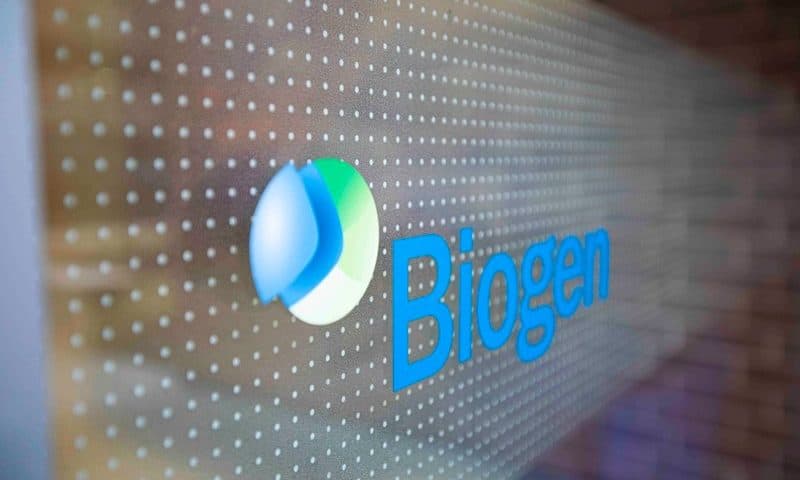Biogen and Roche’s Genentech are looking to follow up on their multidecade history of getting medicines approved together, with the Aduhelm maker dishing out $30 million in the latest attempt.
Roche’s mosunetuzumab is already being considered by European regulators, and the Swiss pharma’s subsidiary Genentech will soon ask the FDA to also approve the bispecific antibody for certain lymphomas. Now, three-decade partner Biogen wants in on the potential commercialization of the drug. Biogen is opting in as part of an anti-CD20 collaboration the companies have had for years.
Under the one-time option fee, Biogen will help Genentech develop and bring mosunetuzumab to market for people with B-cell non-Hodgkin lymphoma, or NHL. Roche recently submitted the initial paperwork to the European Medicines Agency for the CD20 and CD3 T-cell bispecific antibody for the treatment of NHL.
Genentech will finish its request for an FDA green light in the “near future” in relapsed/refractory follicular lymphoma, a slow-growing form of the lympathic cancer that comprises about 20% to 30% of NHL cases.
In that indication, 60% of patients had a complete response to mosunetuzumab in the phase 1/2 GO29781 study, which sets the drug up for regulatory filing, Genentech said at the annual American Society of Hematology meeting in December.
Under the deal, Biogen will pay a portion of the development expenses from last year. The company will also have joint decision-making rights for the development and commercialization of mosunetuzumab.
Biogen and Genentech have a long history in follicular lymphoma, NHL, rheumatoid arthritis and other indications. Partnered since 1995, the duo has received FDA nods for Rituxan beginning in 1997 and successor Gazyva starting in 2013. Rituxan is known as MabThera in other regions, and Gazyva is marketed outside the U.S. as Gazyvaro.
The pair has gone through multiple ups and downs since the mid-’90s in their anti-CD20 collaboration. Rituxan sparked arbitration issues between the two in the 2000s.
Biogen collected $498 million from its share of pretax profits from Rituxan and Gazyva sales in the U.S. in the first nine months of 2021, the company reported in October. Rituxan’s revenue dropped 51.7% year over year in the third quarter due to “the onset of biosimilars competition,” Biogen reported.
The duo has also partnered up on third-party biotechs. Genentech and Biogen have linked arms with neurodegenerative biotech Atalanta Therapeutics, which unveiled with $110 million last month.

